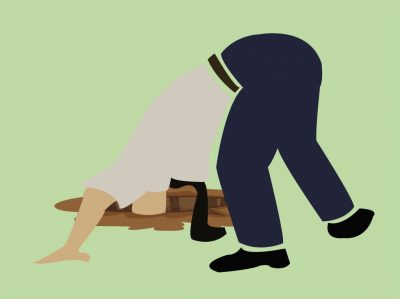Have you ever been so terribly analytical to the point of no return? Ever think so deeply that your mind begins to swirl with ideas and thoughts that confuse you and cause you to question and doubt and wonder?
Profound thinking is an amazing ability that can aid you in many aspects of life — academia, occupational and daily life. But critical thinking can take a hard left turn into existentialism very easily.
As an existential, overthinker myself, I automatically dwell on the tiniest of things — good or bad. Whether it’s my shortcomings or mistakes, achievements and goals, I will mentally expatiate on a subject matter until there is nothing left of it. Doing this can be very deteriorating to one’s mental health and how they approach situations — even if the situation is unproblematic.

My experience with this always led me to one thought — Why didn’t I ruminate when I was younger? I think the answer is that I truly didn’t know a lot about many things and wasn’t educated enough, but at 12 years old and younger, no one knows a lot.
Young children have the privilege of being blissfully ignorant of the cruelties of life, coupled with the lack of emotional maturity that comes with being a young.
The truth is, I was blissfully ignorant when I was little. I didn’t care about the microscopic things within the big picture, and looking back, I was happy and smiley due to my ignorance. I know I’m not the same girl I was six or more years ago, and I know I can’t take back my experiences and education, but it’s quite a beautiful thing to regard something with such ease because you are unfamiliar with it.
You can’t analyze that “something” because you don’t even know what it is. So that “something” holds no meaning, nor is it important to you, so you just plainly regard it and move on. How effortlessly simple is that? It seems almost impossible these days to not have an opinion and not critically think about everything. What’s wrong with regarding and progressing?
Blissful ignorance is definitely not the key to every overthinkers’ problem. I bet an analytical person would hardly ever fall prey to blissful ignorance, but the dangers of overthinking are real. Criticizing unnecessary things, and fault-finding stupid errors is a hotbed for mental health problems like anxiety, and once your mental health declines, the cycle of rumination will increase.
Like every methodology, blissful ignorance has its pitfalls, too. If you are choosing to be blissfully ignorant and not live in reality, then that is a whole other problem. You can’t live in a bubble of fantasy and illusion to avoid the pain of acknowledging the truth of the real world. If you are choosing to be ignorant to postpone problems and avoid stress, then whatever you are avoiding will sooner or later catch up to you, and you will have to face it.
It is very true that knowledge is power. Having knowledge about the unknown can give us the confidence to face whatever obstacles we have to tackle. I don’t love the phrase “ignorance is bliss” because in reality, if there is a significant problem, there is eventually some form of confrontation. I think having the ability to choose when you want to be aware and knowledgeable of something can be mentally healing in times of need.
A big misconception is that if “ignorance is bliss,” then knowledge must be pain. But if anything, innocence is bliss.
You can choose to be ignorant, but not innocent. And knowledge isn’t pain — awareness is.
You should have knowledge, but if you aren’t aware of something, it doesn’t mean you are ignorant.
It just means you’re innocent.


















































































































